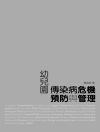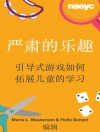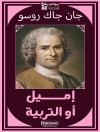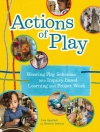What does it mean to inquire? Grownups would say it means to question, to search for information, or to finding out about a topic of interest. For children in an early childhood classroom, the definition is no different. From the time of their birth, children want to know how the world works and actively seek out information. How educators respond to their quest is what this book is all about.
Inquiry-Based Early Learning Environment takes an in-depth look at children’s inquiry. What does inquiry look like in early childhood settings? How does the environment affect children’s inquiries and teachers’ thought processes?
Inquiry-Based Early Learning Environment examines inquiry in all its facets, including environments that support relationships, that create a culture of risk-taking in our thinking, that support teachers as well as children, that include families, that use documentation as a way of thinking about our work, and of course, the physical environment and all the objects and spaces within it. Throughout, stories about environments and approaches to inquiry from around the world are included as examples.
Table des matières
Chapter 1: Introduction
Chapter 2: Setting the Stage for Inquiry: The Physical Environment
Chapter 3: A “Thinking Environment” That Supports Risk-Taking
Chapter 4: An Environment That Promotes Curiosity and Questioning
Chapter 5: Environments That Make Thinking Visible
Chapter 6: Environments That Support Teacher Growth
Chapter 7: An Environment That Supports Relationships
A propos de l’auteur
Susan Stacey has worked in the field of early childhood education for over thirty-five years, as an early childhood educator, director, practicum advisor, and instructor, in both Canada and the United States. She obtained her master’s degree from Pacific Oaks College in Pasadena, California, and frequently speaks across North America about emergent curriculum, reflective and responsive practices, inquiry, documentation, and the role of the arts in early childhood education. She teaches adult students at the Nova Scotia College of Early Childhood Education and belongs to several professional organizations, such as NAEYC and the Canadian Childcare Federation. She has presented frequently at NAEYC conferences and has been published in Young Children, Young Exceptional Children, and Exchange. Her other books by Redleaf Press are Emergent Curriculum in Early Childhood Settings, The Unscripted Classroom, and Pedagogical Documentation in Early Childhood Settings.












